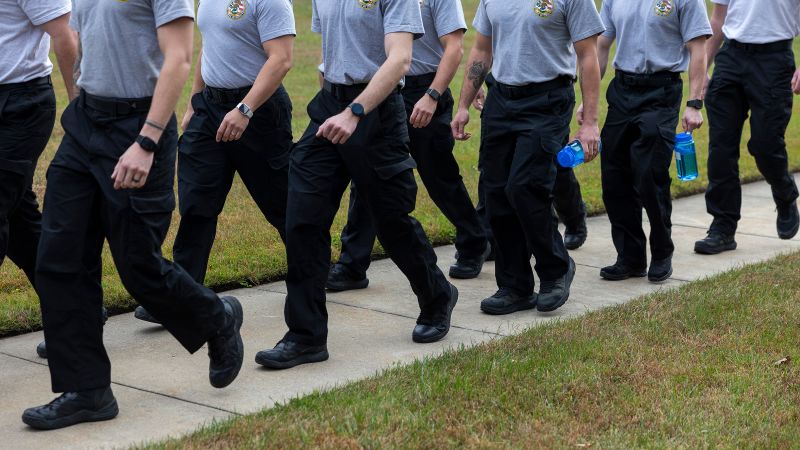A contentious directive has seen highly trained Federal Air Marshals, traditionally tasked with safeguarding commercial aviation, redeployed to monitor Immigration and Customs Enforcement (ICE) deportation flights, sparking significant debate over aviation security. This unprecedented shift, which marks a departure from their core mission of thwarting terrorism on passenger planes, has raised serious questions about the strategic allocation of critical national security resources and the broader implications for public safety.
For the first time, approximately 200 Air Marshals have been assigned to ICE flights since June, with some reports indicating they are undertaking duties far removed from their specialized training, such as serving refreshments and acting as basic security guards. These agents, originally organized in the 1960s to combat hijackings and later focused on post-9/11 counter-terrorism, now find themselves on flights transporting detainees, either within the U.S. or to various international destinations as part of federal immigration policy.
The primary concern emanating from this redeployment is the perceived compromise of commercial flight security. Critics argue that diverting these specialized personnel from their established roles leaves a critical vulnerability in the defense against potential national security threats on commercial aircraft. The strategic implications of this shift extend beyond mere reassignments, touching upon the foundational principles of aviation security and the optimal utilization of federal assets.
In response to these developments, the Air Marshal National Council, a prominent lobby group representing Air Marshals’ interests, has taken decisive action. The council dispatched a cease-and-desist letter to the Department of Homeland Security (DHS) and the Transportation Security Administration (TSA), directly accusing the administration of undermining commercial aviation security. Furthermore, they have filed a formal complaint with the DHS inspector general, intensifying the scrutiny over these controversial assignments.
The council’s grievances highlight several alarming points, including allegations that marshals on these ICE deportation flights are often unarmed while responsible for transporting passengers, contrary to their typical operational protocols. Moreover, they contend that the government is effectively using these federal agents to perform security duties that a private contractor, GEO Group subsidiary GEO Transport, was already contracted and compensated to provide, blurring lines of responsibility and potentially misusing taxpayer funds.
Despite the mounting criticism, the TSA has publicly defended the redeployments, asserting that Federal Air Marshals are “proud to support” their ICE counterparts and that the initiative aligns with interagency efforts to fulfill the President’s mandate to secure the homeland. According to the agency, a comprehensive risk assessment concluded that these reassignments have not detrimentally impacted the marshals’ deployment on domestic and international commercial flights, maintaining the integrity of aviation security measures.
Beyond the reassignment controversy, the volume of ICE flight operations has seen a significant increase. Data from advocacy groups like Witness at the Border reveal a substantial uptick in both international deportation flights and domestic “shuffle flights” moving detainees between U.S. facilities. To manage this expanded operation, ICE has relied on supplementary support from various federal entities, including the US Marshals Service, FBI, and now, the TSA’s Federal Air Marshals division.
The financial aspects of these redeployments also draw attention; some Federal Air Marshals assigned to ICE flights are reportedly receiving substantial overtime pay, a new development as marshals had not previously been used for direct deportation flight security. While the Air Marshal Association, a union, supports these reassignments as a means for agents to perform “vital security functions,” the Air Marshal National Council maintains that their core mission of thwarting hijackings on commercial planes remains paramount, underscoring a division within the community regarding their evolving role under DHS oversight.
These operational changes underscore the complex and extensive infrastructure supporting the U.S. deportation system, which involves a vast network of airports, private charter companies, and various service providers. As significant federal funding continues to be allocated to ICE flight operations, the debate persists over whether the current utilization of specialized aviation security personnel optimally serves the broader interests of national and aviation security while executing immigration policy.






Leave a Reply